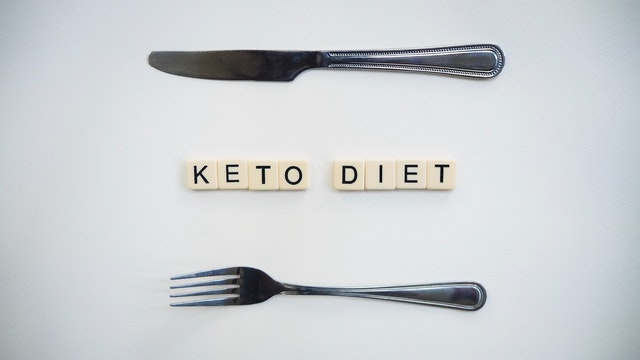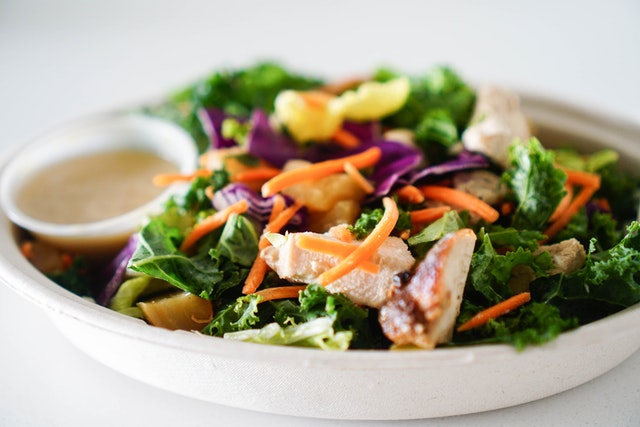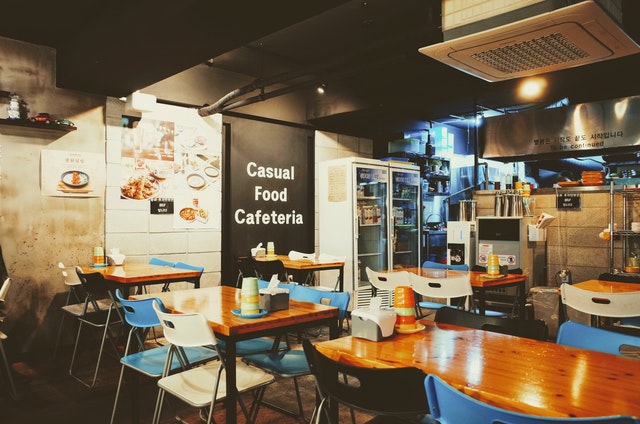
If you have high blood pressure, your doctor may have told you to watch your salt intake. But did you know that there are other foods that can also affect your blood pressure? In this blog post, we’ll discuss some of the foods that can help or hinder your efforts to keep your blood pressure under control. Armed with this information, you can work with your doctor to create a plan that will best suit your needs.
How does food affect your blood pressure?
High blood pressure, or hypertension, is a condition in which the blood pressure in your arteries is consistently too high. This can lead to many health problems, including heart disease, stroke, and kidney failure.
There are many different things that can cause high blood pressure, including genetics, age, and lifestyle choices. However, one of the most common causes is diet. There are certain foods that have been shown to increase blood pressure, and it’s important to be aware of them if you want to keep your blood pressure under control.
There is a close relationship between food and blood pressure. What you eat has a significant impact on your blood pressure levels. Various foods can either help to lower blood pressure or contribute to high blood pressure. Learning about how food affects your blood pressure is an important step in managing this condition.
Some of the main factors that influence blood pressure are sodium, potassium, and magnesium levels. For people with high blood pressure, it is important to reduce the amount of salt in their diet. This means avoiding processed foods and sticking to whole, unprocessed foods instead. Some good sources of sodium-free food include fruits, vegetables, legumes, and whole grains.
Potassium is another important nutrient for blood pressure control. Potassium-rich foods include bananas, avocados, tomatoes, potatoes, leafy greens, and salmon. Magnesium is also beneficial for blood pressure and can be found in nuts, seeds, legumes, and whole grains.
In addition to reducing the amount of salt and unhealthy fats in your diet, it is also important to increase your intake of healthy Omega-3 fatty acids. Omega-3s can be found in fatty fish like salmon and sardines, as well as walnuts, chia seeds, and flaxseeds.
Making small changes to your diet can have a big impact on your blood pressure levels. By incorporating some of the foods mentioned above into your diet, you can help to lower your blood pressure and improve your overall health.
Which foods cause high blood pressure?
What you eat can have a significant impact on your blood pressure. Here are some foods that are known to cause high blood pressure:
Salt
Salt is one of the biggest culprits when it comes to high blood pressure. Too much salt in your diet can increase the amount of water retained in your body, which raises blood pressure. Try to limit your intake of processed foods, which are often high in salt, and season your food with herbs and spices instead.
Fatty Foods
A diet high in unhealthy fats can also raise blood pressure. Saturated and trans fats can increase inflammation and oxidative stress in the body, both of which can lead to hypertension. Instead, try to eat healthy fats like Omega-3s, which have anti-inflammatory properties.
Alcohol
Heavy alcohol consumption can also increase blood pressure. Excessive alcohol intake can damage the lining of your arteries, leading to hypertension. If you do drink, try to stick to moderate amounts.
Caffeine
Caffeine is another substance that can raise blood pressure. It works by narrowing the blood vessels, which forces the heart to work harder to pump blood around the body. Try to limit your caffeine intake to no more than 300 mg per day.
Sugary Foods
Added sugar is another food group that can cause high blood pressure. Sugar raises insulin levels in the body, which leads to inflammation and increases the risk of hypertension. Try to avoid sugary drinks and snacks, and opt for whole foods instead.
Which foods lower high blood pressure?
If you are looking for ways to lower your high blood pressure, you are not alone. Many people struggle with hypertension, which can lead to a number of health complications if left untreated.
Fortunately, there are many different food options that can help to lower your blood pressure. Some of the best food choices include:
Fruits and vegetables
fresh produce is packed with nutrients and minerals that can help to regulate blood pressure levels. Fruits and vegetables also contain antioxidants, which can help to protect your cardiovascular system from damage.
Whole grains
Unlike processed grains, whole grains are high in fibre and other essential nutrients that can help keep your blood pressure in check. Try swapping white bread for a wholegrain variety, or enjoying a bowl of oatmeal for breakfast.
Low-fat dairy
Dairy products are a good source of calcium and vitamin D, both of which have been shown to help regulate blood pressure levels. Choose low-fat or fat-free varieties whenever possible.
Nuts and seeds
These healthy snacks are a good source of magnesium, potassium, and other minerals that can help to lower blood pressure. Enjoy a handful as a snack, or sprinkle them on your breakfast cereal or salad.
Celery
This crunchy vegetable is a good source of magnesium, potassium, and fiber. All of these nutrients can help to lower blood pressure.
Blueberries
These berries are high in antioxidants, which can help to improve hypertension.
Fatty Fish
Salmon, trout, mackerel, and herring are all high in omega-3 fatty acids, which can help to reduce blood pressure.
Bananas
This fruit is high in potassium, a mineral that can help to lower blood pressure.
Olive Oil
This healthy oil is high in monounsaturated fats, which have been shown to reduce blood pressure.
Dark Chocolate
This treat is high in antioxidants, which can help to improve hypertension.
While these are some of the best foods to eat if you have high blood pressure, it is important to remember that not every food will work for everyone. You may need to experiment with different foods to find what works best for you. And, as always, be sure to speak with your doctor before making any changes to your diet.
What is the best diet for controlling high blood pressure?
There is no one-size-fits-all answer to this question, as the best diet for controlling high blood pressure may vary depending on the individual’s specific situation and health condition. However, some diets are known to be more effective than others in helping to lower blood pressure.
One such diet is the Mediterranean diet. This diet is based on the traditional food habits of people living in countries around the Mediterranean Sea, such as France, Italy, and Greece. The Mediterranean diet is high in fruits, vegetables, whole grains, legumes, nuts, and olive oil, and low in saturated fat and red meat. Studies have shown that the Mediterranean diet can help reduce blood pressure levels by up to 14 points systolic (the top number in a blood pressure reading) and by 8 points diastolic (the bottom number).
Other diets that have been shown to be effective in lowering blood pressure include the DASH diet and the Dietary Approaches to Stop Hypertension (DASH) diet. The DASH diet is high in fruits, vegetables, whole grains, low-fat dairy products, fish, poultry, legumes, nuts, and seeds, and low in saturated fat and red meat. The DASH diet has been shown to lower blood pressure by up to 14 points systolic and by 8 points diastolic.
If you are looking for a diet to help control your high blood pressure, speak with your doctor about the best options for you. There are many different diets that have been shown to be effective in lowering blood pressure, and your doctor can help you find one that is right for you.

Is the Keto diet good for controlling high blood pressure?
The keto diet is a high-fat, low-carbohydrate diet that has been shown to be effective in controlling high blood pressure. By reducing the number of carbohydrates in your diet, you can help to lower your blood pressure and improve your overall health. The keto diet is also effective for weight loss, which can further improve your blood pressure levels. If you are interested in trying the keto diet to control your high blood pressure, talk to your doctor about how to get started.
A ketogenic diet can be a great way to reduce your blood pressure, especially if you suffer from hypertension. By eating foods that are high in healthy fats and low in carbs, you can help your body to achieve a state of ketosis, which has been shown to reduce blood pressure. If you’re looking for a delicious and satisfying keto food option, try incorporating some avocado into your diet.
Avocados are packed with healthy monounsaturated fats, as well as potassium, which can help to lower blood pressure. Plus, they’re incredibly delicious and versatile! You can add them to salads, and smoothies, or even just eat them plain. Give the keto diet a try and see how it works for you!
Is the Paleo Diet good for controlling high blood pressure?
The Paleo diet is a natural way of eating that focuses on whole, unprocessed foods. This type of diet can help to lower blood pressure and improve overall health.
However, there is some debate over whether the Paleo Diet is good for controlling high blood pressure. Some people believe that the diet can help to regulate blood pressure, while others claim that it can actually have the opposite effect. More research is needed to determine whether or not the Paleo Diet is an effective way to manage high blood pressure.
Is being a Vegan good for controlling high blood pressure?
There are many different types of diets out there, and one that has been growing in popularity in recent years is veganism. A vegan diet excludes all animal products, including meat, eggs, and dairy. Some people choose to go vegan for ethical reasons, while others do it for health reasons. There are many purported benefits of a vegan diet, including weight loss, improved heart health, and lower blood pressure.
So is being a vegan good for controlling high blood pressure? The answer is yes! A vegan diet is naturally low in sodium and high in fiber, both of which are important for keeping blood pressure under control. Vegan diets are also rich in antioxidants and other nutrients that can help improve heart health.
Which restaurants are good for me if I have high blood pressure?
There are many restaurants that offer food that is good for those who have high blood pressure. Some of the best options include Japanese cuisine, which is low in salt and fat, as well as Mediterranean food, which is high in fiber and antioxidants. You can also find healthy options at most restaurants if you know what to look for.
Just be sure to ask your server about the ingredients in each dish before making a decision. And if you’re not sure where to start, try looking for restaurants that have a green leaf icon on their menus. These establishments specialize in healthy food choices and can help you make the best decisions for your dietary needs.
How to enjoy the food at family gatherings if you have high blood pressure?
If you have high blood pressure, you may be wondering how to enjoy the food at family gatherings. Here are a few tips:
- Try to choose lower-sodium options when possible. This includes avoiding processed foods and going for whole foods instead.
- Watch your portion sizes. oversized portions can contribute to high blood pressure, so try to stick to reasonable serving sizes.
- Drink plenty of water throughout the gathering. This will help keep you hydrated and may help to regulate your blood pressure.
- Take breaks between meals. If you’re feeling overwhelmed by all the food, take a break and go for a walk or talk with family members. This will help you eat more mindfully and avoid overindulging.
- Avoid alcohol. Excessive alcohol consumption can also raise blood pressure, so it’s best to avoid it altogether.
By following these tips, you can enjoy the food at family gatherings while still managing your high blood pressure.
How to ask my doctor about going on a diet for my high blood pressure?
If you are concerned about your high blood pressure, or hypertension, one of the best things you can do is talk to your doctor about diet. There are many diets that have been shown to help lower blood pressure, and your doctor can help you find the best one for you.
There are a few things to keep in mind when talking to your doctor about diet:
– First, be sure to tell your doctor what type of diet you are interested in. There are many different types of diets, from low-sodium to high-protein. Your doctor can help you find the best one for your needs.
– Second, be prepared to answer some questions about your current diet. Your doctor will want to know what you are currently eating and may make some suggestions about how to make changes.
– Finally, be patient. It may take some time to find the right diet for you, and you may need to make some adjustments along the way. But, with your doctor’s help, you can lower your blood pressure and improve your health.
CONCLUSION
If you are looking for a way to lower your blood pressure, talking to your doctor about diet is a great place to start. There are many diets that have been shown to be effective in lowering blood pressure, and your doctor can help you find the best one for you. Here at our online clinic, we offer appointments with specialists who can help you create a personalized plan that will work best for you. Contact us today to get started!
BLOG AUTHOR
Dr. Ismail Sayeed
Dr. Sayeed is the Medical Director of ViOS, Inc. He is a deeply committed physician entrepreneur & medical blog writer. While building the global infrastructure of the VIOS Clinic, he is dedicated to educate people on the potential of specialist telemedicine for managing chronic diseases.
Read more about him in his author bio






